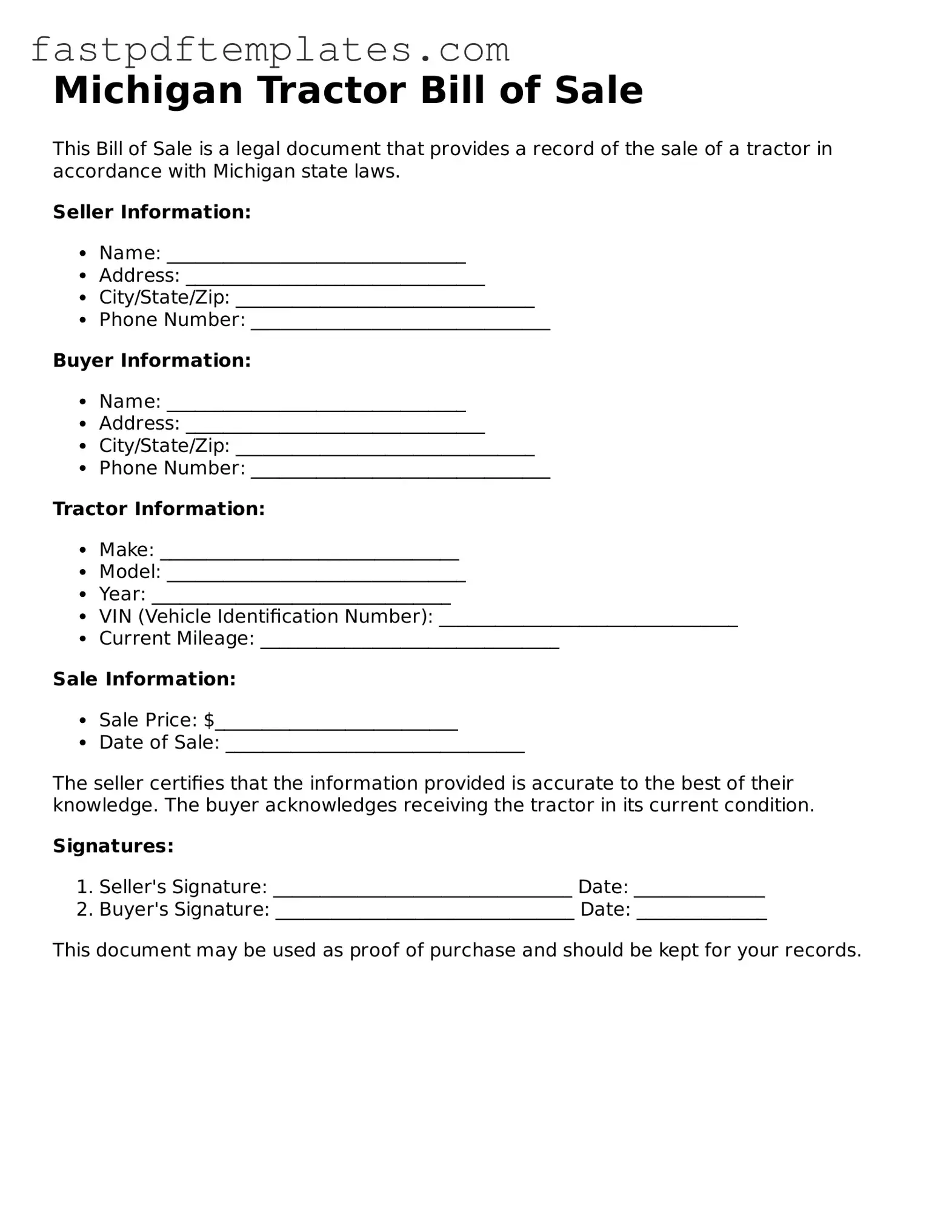The Michigan Vehicle Bill of Sale is similar to the Tractor Bill of Sale in that both documents serve as proof of transfer of ownership for vehicles. This form includes details such as the buyer's and seller's names, vehicle identification numbers, and sale price. Both documents are essential for registering the vehicle with the state and ensuring that the transaction is legally recognized. They help protect both parties by documenting the sale and providing a record of the transaction.
The Michigan Boat Bill of Sale also shares similarities with the Tractor Bill of Sale. Like the tractor sale, this document records the transfer of ownership for a watercraft. It includes essential details such as the boat's hull identification number, the buyer's and seller's information, and the sale price. This bill of sale is crucial for registering the boat and can serve as a legal safeguard for both the buyer and seller in case of disputes.
The Motorcycle Bill of Sale is another document that resembles the Tractor Bill of Sale. Both forms are used to transfer ownership of a vehicle, ensuring that the new owner has proof of purchase. The motorcycle version includes specific details such as the motorcycle's VIN, the names of the parties involved, and the purchase amount. This document is vital for registration and can help prevent issues related to ownership in the future.
The Snowmobile Bill of Sale functions similarly to the Tractor Bill of Sale as well. It documents the sale of a snowmobile, capturing the necessary details like the snowmobile's identification number, buyer and seller information, and the sale price. This form is important for registering the snowmobile and provides legal protection for both parties involved in the transaction.
The RV Bill of Sale is comparable to the Tractor Bill of Sale in that it records the sale of a recreational vehicle. It includes pertinent information such as the RV's VIN, the identities of the buyer and seller, and the agreed-upon sale price. This document is essential for registering the RV and can help resolve any ownership disputes that may arise after the sale.
Finally, the General Bill of Sale can be viewed as similar to the Tractor Bill of Sale. This document is more versatile and can be used for various personal property transactions, including tractors. It captures the names of the buyer and seller, a description of the item sold, and the sale price. While it may not contain vehicle-specific information, it still serves as a legal record of the transaction and protects both parties involved.

